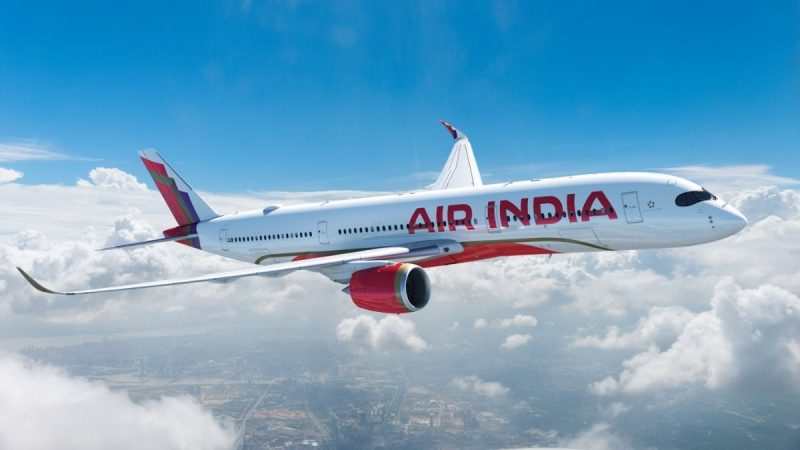An Air India flight triggered a major security alert following a false hijack signal on the evening of Monday, January 27, 2025. Flight AI 2957, from the Indira Gandhi International Airport or the IGIA in Delhi, transmitted a ‘squawk 7500’ code shortly after takeoff at 8:40 pm. The plane was headed towards the Chhatrapati Shivaji Maharaj International Airport or the CSMIA in Mumbai. The alarm automatically activated hijack protocols.
Delhi-Mumbai Air India Flight Sends Out ‘Hijack’ Alert Mid-Air
According to an article that was recently published by the Hindustan Times or the HT, the aircraft’s transponder sent the emergency code for a total of three minutes. This prompted immediate action from Delhi’s air traffic control.
In aviation terms, squawk 7500 specifically indicates unlawful interference or hijacking, distinct from codes 7600 and 7700 which signal radio failure and general emergencies respectively. Despite the pilot’s swift notification that it was a false alarm, security protocols remained fully activated.
A central committee was established in Delhi, comprising representatives from the police, Central Industrial Security Force, Airports Authority of India, Bureau of Civil Aviation Security and the Air Force. The flight, carrying 126 passengers, landed at Mumbai airport at 9:47 pm.
Deemed False Alarm After Due Investigation
Prior to landing, Mumbai authorities had declared a full emergency at approximately 9:30 pm, mobilising local police, stakeholders and the National Security Guard. Following standard procedure, the aircraft was directed to an isolation bay upon landing.
Passengers remained on board for an additional hour whilst authorities conducted necessary security checks. The Directorate General of Civil Aviation or the DGCA, along with other regulatory bodies, launched an investigation to determine the cause of the false signal.
Officials are examining whether the incident resulted from pilot error, air traffic control misinterpretation, or technical malfunction. Throughout the incident, the pilot maintained that the flight was operating normally and repeatedly assured authorities that there had been no hijacking attempt.
However, as per standard operating procedure, security protocols continued regardless of these assurances, considering the possibility that such communications could be made under duress.
Has anything like this happened on a flight that you’ve been on? Let us know in the comments section below!
Cover Image Credits: Air India/Website
For more such snackable content, interesting discoveries and the latest updates on food, travel and experiences in your city, download the Curly Tales App. Download HERE.

